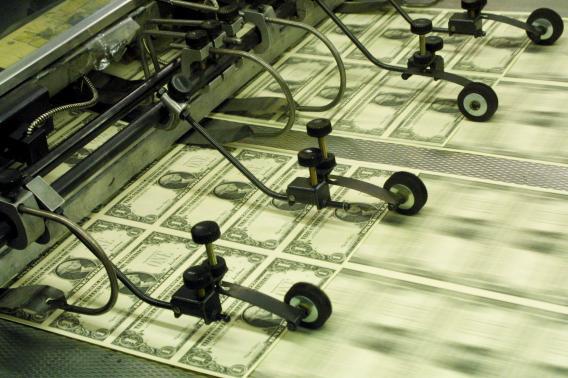A lot of people seem very upset that expansionary monetary policy is just a covert way of waging “currency wars.” I think that’s backward. Currency depreciation is just a covert way of engaging in expansionary monetary policy, and expansionary monetary policy is great. Currency wars—i.e., simultaneous monetary expansion in the world’s major rich countries—is exactly what the world needs.
On my side of the debate, you can find Greg Ip at the Economist and of course the great Paul Krugman.
As for the other side of the argument, well, I don’t quite get what the other side of the argument is.
I’ve clashed with Carnegie’s Devin Stewart on this a couple of times, though, and I think I’m coming to grasp what his concerns are. If leaders fixate on the idea that the sole virtue of expansionary monetary policy is exchange-rate depreciation and higher net exports, then we risk a scenario in which countries end up in an escalating trade war involving noncurrency measures, too. That would be destructive, I agree. But the correct remedy isn’t for countries to stick with too-tight monetary policy out of fussy aversion to currency wars. The remedy is to try to spread understanding that monetary stimulus isn’t only about exchange-rate effects and net exports. For very small countries that is probably what it’s mostly about, but for bigger countries it’s a side issue. The point of monetary stimulus is to induce firms to want more capital goods and less cash and households to want more durable goods and less cash. You should definitely end up with more gross exports if you undertake expansionary policy, but the net exports factor is a sideshow and depends largely on what your trade partners want to do.
